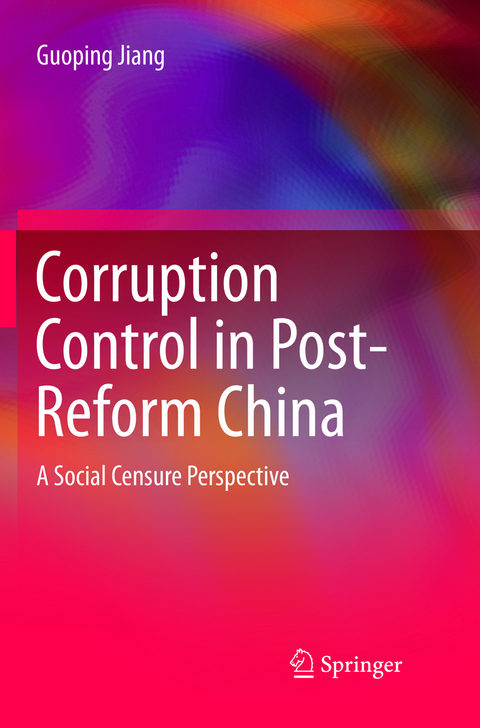
Corruption Control in Post-Reform China
A Social Censure Perspective
Seiten
2018
|
Softcover reprint of the original 1st ed. 2017
Springer Verlag, Singapore
978-981-13-5033-7 (ISBN)
Springer Verlag, Singapore
978-981-13-5033-7 (ISBN)
The book examines corruption control in post-reform China. Contrary to the normal perception that corruption is a type of behavior that violates the law, the author seeks to approach the issue from a social censure perspective, where corruption is regarded as a form of social censure intended to maintain the hegemony of the ruling bloc.
The book examines corruption control in post-reform China. Contrary to the normal perception that corruption is a type of behavior that violates the law, the author seeks to approach the issue from a social censure perspective, where corruption is regarded as a form of social censure intended to maintain the hegemony of the ruling bloc. Such an approach integrates societal structure, political goals, and agency into a single framework to explain dynamics in corruption control. With both qualitative data from officials in power and officials in jail and quantitative data from university students, the book explores how the censure on corruption was created and has been applied from 1978 to the present. Though primarily intended for academics, the book is also accessible for general audiences, especially given its intriguing perspective and use of firsthand data on corruption that cannot be found anywhere else.
The book examines corruption control in post-reform China. Contrary to the normal perception that corruption is a type of behavior that violates the law, the author seeks to approach the issue from a social censure perspective, where corruption is regarded as a form of social censure intended to maintain the hegemony of the ruling bloc. Such an approach integrates societal structure, political goals, and agency into a single framework to explain dynamics in corruption control. With both qualitative data from officials in power and officials in jail and quantitative data from university students, the book explores how the censure on corruption was created and has been applied from 1978 to the present. Though primarily intended for academics, the book is also accessible for general audiences, especially given its intriguing perspective and use of firsthand data on corruption that cannot be found anywhere else.
Guoping Jiang obtained his PhD from City University of Hong Kong, is currently assistant professor of sociology at the King Fahd University of Petroleum and Minerals which is the best in the Middle East. Coming from a sociological background, he has been engaged in corruption research and has broad interests in China studies.
Corruption and anticorruption in China.- Corruption-Theories and Perspectives.- A Contextualized Approach: Theory of Social Censure.- Methods.- Shift of mode: from a mass line approach to a bureaucratic approach.- Status of Law.- Creation of Social Censure on Corruption.- Application of social censure on corruption.- Outcome of social censure on corruption.- Conclusion.
| Erscheinungsdatum | 04.03.2022 |
|---|---|
| Zusatzinfo | 25 Illustrations, black and white; VIII, 237 p. 25 illus. |
| Verlagsort | Singapore |
| Sprache | englisch |
| Maße | 155 x 235 mm |
| Themenwelt | Recht / Steuern ► Strafrecht ► Kriminologie |
| Sozialwissenschaften ► Politik / Verwaltung | |
| Sozialwissenschaften ► Soziologie ► Allgemeines / Lexika | |
| Sozialwissenschaften ► Soziologie ► Allgemeine Soziologie | |
| Schlagworte | bureaucratic form • corruption control • hegemony • political goals • post-reform China • rule by law • Rule of Law • scapegoat phenomenon • selected targeting • social censure |
| ISBN-10 | 981-13-5033-7 / 9811350337 |
| ISBN-13 | 978-981-13-5033-7 / 9789811350337 |
| Zustand | Neuware |
| Informationen gemäß Produktsicherheitsverordnung (GPSR) | |
| Haben Sie eine Frage zum Produkt? |
Mehr entdecken
aus dem Bereich
aus dem Bereich
klare Antworten aus erster Hand
Buch | Softcover (2023)
UTB (Verlag)
CHF 27,85


